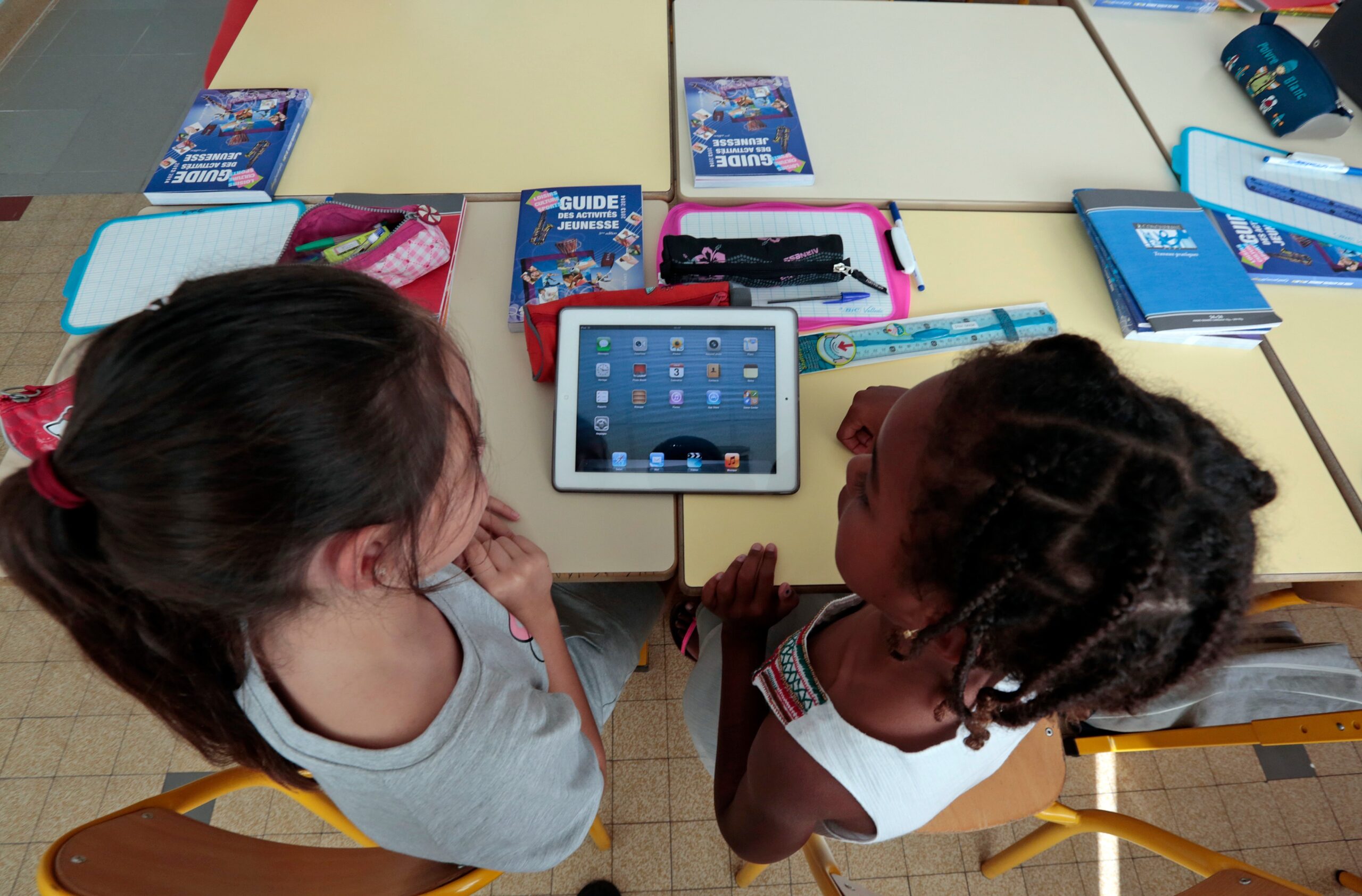Tablets have had a significant impact on society since their introduction. These portable touchscreen devices have transformed the way we consume information, communicate, and perform various tasks. Here are some key aspects of their impact on society:
- Communication and Connectivity: Tablets have revolutionized communication by providing users with easy access to email, social media, messaging apps, and video calling services. They have enhanced connectivity, allowing people to stay connected wherever they are.
- Information Access: Tablets have made information readily available at our fingertips. With internet connectivity, users can access a vast amount of information, news, articles, books, and educational resources. This has democratized knowledge and expanded learning opportunities.
- Education: Tablets have made a significant impact in the field of education. They are used in schools and classrooms as powerful learning tools. Tablets enable interactive and engaging educational experiences, offering access to digital textbooks, educational apps, multimedia content, and collaborative learning platforms.
- Entertainment: Tablets have transformed the entertainment industry. Users can stream movies, TV shows, and music, play games, read e-books, and access various digital entertainment platforms. Tablets provide a portable and immersive entertainment experience.
- Productivity: Tablets have become valuable productivity tools for professionals. They offer features like document editing, note-taking, calendar management, and email integration. Tablets have also replaced traditional paper-based systems, making tasks like reading, annotating, and signing documents more efficient.
- E-commerce: Tablets have contributed to the growth of e-commerce. With online shopping apps and mobile payment options, users can easily make purchases from their tablets. This has transformed the retail industry and provided consumers with convenient shopping experiences.
- Health Care: Tablets have found applications in healthcare settings. They are used for medical record keeping, patient monitoring, telemedicine, and accessing medical resources. Tablets have improved the efficiency of healthcare professionals and enabled remote healthcare services.
- Accessibility and Inclusion: Tablets have played a role in increasing accessibility for individuals with disabilities. The touchscreen interface and various accessibility features have made tablets more user-friendly for people with visual, hearing, or motor impairments.
- Digital Divide: While tablets have brought numerous benefits, the affordability and accessibility of these devices have created a digital divide. Not everyone has equal access to tablets and the internet, leading to disparities in digital literacy and opportunities.
Overall, tablets have had a transformative impact on society, influencing how we communicate, learn, work, entertain ourselves, and access information. Their portability, versatility, and user-friendly interfaces have made them indispensable devices in many aspects of our daily lives.
Information Access:

Tablets have greatly transformed the way we access and consume information. Here are some key points regarding the impact of tablets on information access:
- Internet Connectivity: Tablets provide users with easy and portable access to the internet. With built-in Wi-Fi or cellular data connectivity, tablets enable instant access to a wealth of online information.
- Wide Range of Content: Tablets offer a wide variety of content options. Users can access websites, news portals, blogs, digital libraries, and online databases. They can explore diverse topics and stay up to date with the latest information.
- Digital Reading: Tablets have revolutionized the way we read. They offer e-book reading capabilities, allowing users to carry a vast library of books in a single device. E-books are easily accessible, and tablets provide features like adjustable font sizes, bookmarking, and highlighting.
- Multimedia Consumption: Tablets support multimedia content consumption. Users can watch videos, listen to music, and view images on high-resolution displays. Streaming services have become popular on tablets, offering on-demand access to movies, TV shows, and music.
- Educational Resources: Tablets have become valuable tools for accessing educational resources. Students can access digital textbooks, educational apps, interactive learning materials, and online courses. This accessibility has expanded learning opportunities and made education more engaging.
- News and Current Events: Tablets provide convenient access to news and current events. Users can browse news websites, access dedicated news apps, and subscribe to digital newspapers and magazines. Push notifications keep users updated on breaking news.
- Personalized Content Recommendations: Many tablets come with intelligent algorithms that analyze user preferences and behavior to provide personalized content recommendations. This helps users discover new information and content based on their interests.
- Social Media and Online Communities: Tablets facilitate easy access to social media platforms and online communities. Users can connect with others, share information, and participate in discussions. This fosters collaboration and the exchange of ideas.
- Offline Access and Downloading: Tablets often offer the ability to download content for offline access. Users can save articles, videos, and documents to view later, even when not connected to the internet. This feature enhances information accessibility in areas with limited connectivity.
The accessibility and convenience of tablets have significantly broadened information access for individuals. They have empowered users to explore diverse content, stay informed, and pursue lifelong learning. Tablets have made information more portable, personalized, and easily accessible, transforming the way we interact with knowledge.
Entertainment:
Tablets have had a profound impact on the entertainment industry, revolutionizing how we consume and engage with various forms of entertainment. Here are some key points highlighting the impact of tablets on entertainment:
- Video Streaming: Tablets provide an immersive platform for video streaming services. Users can watch movies, TV shows, and online videos on high-resolution displays with vibrant colors and excellent audio quality. Streaming platforms like Netflix, Amazon Prime Video, and Hulu offer a vast library of content that can be enjoyed on tablets.
- Gaming: Tablets have become popular gaming devices. They offer a large touchscreen interface, motion sensors, and powerful processors, providing a dynamic gaming experience. Users can download and play a wide range of games from app stores, including casual games, immersive 3D games, and multiplayer online games.
- Digital Reading: Tablets have transformed the way we read books, magazines, and comics. E-book reading apps provide a convenient platform to access and read digital publications. Tablets offer features like adjustable font sizes, customizable backgrounds, and bookmarking, enhancing the reading experience.
- Music and Audio Streaming: Tablets serve as portable music and audio players. Users can access streaming services like Spotify, Apple Music, and Pandora to enjoy a vast collection of songs and podcasts. Tablets provide an interactive interface for browsing and creating personalized playlists.
- Digital Art and Creativity: Tablets have become tools for artistic expression and creativity. Artists can use stylus pens and drawing apps to create digital artwork, illustrations, and animations. Tablets offer features like pressure sensitivity and palm rejection, making them versatile tools for digital artists.
- Social Media and Content Creation: Tablets play a significant role in social media engagement and content creation. Users can access social media platforms, share photos and videos, and connect with others. Tablets also provide multimedia editing tools, allowing users to create and edit content on the go.
- Augmented Reality (AR) and Virtual Reality (VR): Tablets have contributed to the growth of AR and VR experiences. With the help of compatible accessories, tablets can provide immersive AR and VR content, offering interactive and engaging experiences in gaming, education, and entertainment.
- Portable Entertainment Hub: Tablets serve as a portable entertainment hub, combining multiple forms of media in a single device. Users can access movies, music, books, games, and social media on a single platform, eliminating the need for separate devices.
- Second Screen Experience: Tablets have become popular as a second screen companion while watching TV or movies. Users can engage in live chats, access additional information about the content, or control media playback using their tablets, enhancing the overall viewing experience.
Tablets have transformed the entertainment landscape, providing users with a versatile and portable platform for consuming various forms of entertainment. They have made entertainment more accessible, interactive, and personalized, allowing individuals to enjoy their favorite content anytime, anywhere.

Education:
Tablets have made a significant impact on the field of education, transforming the way students learn and educators teach. Here are some key points highlighting the impact of tablets on education:
- Interactive Learning: Tablets offer interactive learning experiences. Educational apps, multimedia content, and digital textbooks provide engaging and interactive ways for students to explore and understand concepts. Tablets allow for interactive quizzes, simulations, and multimedia presentations, making learning more enjoyable and effective.
- Access to Educational Resources: Tablets provide easy access to a wide range of educational resources. Students can access online libraries, educational websites, and digital databases, expanding their access to information and research materials. This enables them to explore diverse topics and deepen their understanding of subjects.
- Digital Textbooks and E-books: Tablets have replaced traditional textbooks with digital alternatives. E-books are lightweight, portable, and offer features like adjustable font sizes, highlighting, and interactive multimedia elements. Digital textbooks are often more cost-effective and can be regularly updated with the latest information.
- Collaborative Learning: Tablets facilitate collaborative learning experiences. Students can collaborate on projects, share resources, and engage in group discussions using collaborative platforms and educational apps. Tablets enable real-time collaboration, enhancing communication and teamwork among students.
- Personalized Learning: Tablets allow for personalized learning experiences. Educational apps and platforms can adapt to individual student needs, providing tailored content and adaptive assessments. Students can learn at their own pace and receive immediate feedback, promoting personalized and differentiated instruction.
- Multimedia and Visual Learning: Tablets support multimedia-rich content, enabling visual and auditory learning experiences. Students can access videos, animations, and interactive simulations that enhance their understanding of complex concepts. Tablets cater to different learning styles, making education more inclusive.
- Remote and Distance Learning: Tablets have played a vital role in remote and distance learning, especially during times of school closures and disruptions. With internet connectivity, students can attend virtual classes, access online learning platforms, and submit assignments from their tablets. This flexibility has increased access to education, especially in remote or underserved areas.
- Organizational Tools: Tablets serve as effective organizational tools for students. They can use productivity apps for note-taking, task management, and time scheduling. Tablets provide a centralized platform for organizing class materials, assignments, and study resources, promoting better organization and time management skills.
- Accessibility and Special Education: Tablets offer accessibility features that support diverse learning needs. These features include screen readers, text-to-speech, closed captioning, and magnification options. Tablets have improved access to education for students with disabilities, promoting inclusivity in the learning environment.
Tablets have transformed education by providing interactive, personalized, and accessible learning experiences. They have expanded access to educational resources, fostered collaboration, and enhanced engagement among students. Tablets continue to play a crucial role in shaping the future of education, enabling innovative teaching and learning approaches.

Conclusion
In conclusion, tablets have had a significant and far-reaching impact on society. They have transformed the way we communicate, access information, and engage in various activities. The introduction of tablets has brought about several changes:
Firstly, tablets have revolutionized communication by providing easy access to email, social media, messaging apps, and video calling services. They have enhanced connectivity and enabled people to stay connected wherever they are.
Secondly, tablets have expanded information access, making a vast amount of knowledge readily available at our fingertips. With internet connectivity, users can access news, articles, books, educational resources, and more. Tablets have democratized knowledge and expanded learning opportunities.
Thirdly, tablets have made a significant impact on education. They are used as powerful learning tools in schools and classrooms, enabling interactive and engaging educational experiences. Digital textbooks, educational apps, and collaborative learning platforms have transformed the way students learn and educators teach.
Furthermore, tablets have transformed the entertainment industry. Users can stream movies, TV shows, play games, read e-books, and access various digital entertainment platforms. Tablets provide a portable and immersive entertainment experience.
Tablets have also become valuable productivity tools for professionals. They offer features like document editing, note-taking, calendar management, and email integration. Tablets have replaced traditional paper-based systems and made tasks more efficient.



